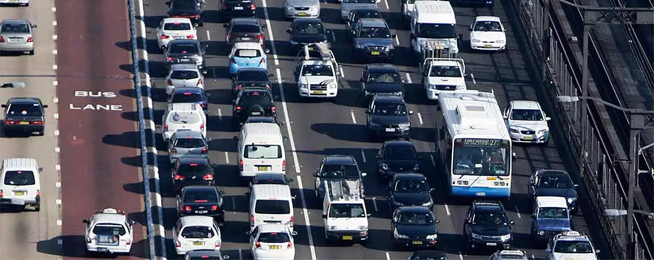The latest report into solving Melbourne’s and Sydney’s traffic woes emphasises the need for congestion charging.
The Grattan Institute report, Stuck in traffic? Road congestion in Sydney and Melbourne warns that with high population growth, traffic congestion will continue to cost the economy billions each year.
In examining more than 3.5 million Google maps trip time estimates, the report makes a number of recommendations including congestion charging, lower off-peak public transport fares and increased inner city parking levies.
Congestion charging serves to deter peak hour travel and manage traffic flow where people who travel outside of peak times would not have to pay.
The report also makes it clear that any money raised through the congestion levy should be used to discount vehicle registration fees and improve the public transport network.
It does not mention any strategies that encourage more people to ride bikes.
While Bicycle Network CEO Craig Richards believes that more must be done to battle congestion, the idea that funds should be used to cut the cost of car registration is counter intuitive.
“We know you can’t build your way out of congestion but using revenue from a congestion levy to fund cheaper car registration doesn’t make any sense,” Mr Richards said.
“Bikes remain the easiest, cheapest and most convenient way to get around. By failing to provide for bikes we’re putting the liveability, health and happiness of our cities at stake.”
A congestion charging scheme has proven particularly successful overseas where revenue was reinvested in improving cycling and public transport networks.
London saw an overall reduction of 11% in vehicle kilometers between 2000 and 2012 as a result of congestion charging.


